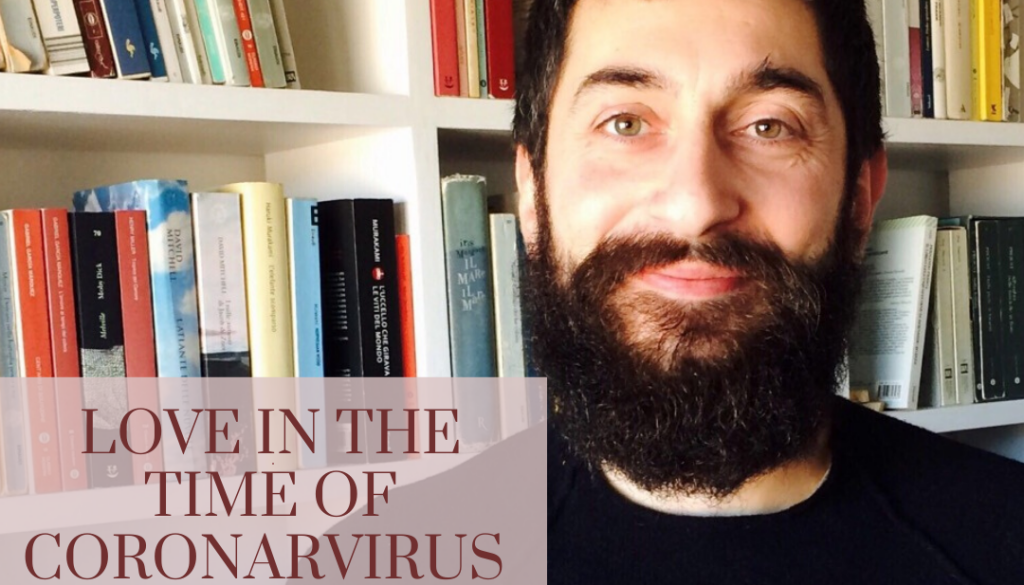Love in the Time of Coronavirus ~ A Letter from a Roman Pediatrician
Dear Parents,
We find ourselves in a delicate and complex period.
The new coronavirus epidemic is changing our lives a bit and I imagine that there are many worries and uncertainties for everyone. In this letter I would like to point out the most important points that I think should be taken into consideration at this time.
Do we have to worry? And for what exactly?
The new coronavirus is a microbe that humans have never known before. In other words, we are all susceptible to this infection, and it is very easy to catch the virus if we encounter it. This means that the infection can spread very quickly throughout the population. Clinically, the virus gives the typical symptoms of respiratory infections: sore throat, cold, cough, fever.
In children, symptoms are minimal and no major complications are described.
As for adults, pneumonia can occur in 20% of cases, but only in 5-6% of cases is the infection severe enough to require hospitalization in intensive care, and in 2-3% of cases results in death. Almost all the deaths affect elderly people, who have other preexisting conditions.
Based on the data currently in our possession, children with asthma, allergy and other chronic conditions do not seem to have a greater risk of complications.
So, from a clinical point of view, we don’t have to worry about our children, and even if we parents got sick, in most cases we wouldn’t have major consequences. Grandparents are a bit of a higher risk, given the age and frequency of associated pathologies (such as heart disease, diabetes, etc.).
In the case of this epidemic, “concern” should be addressed to the community. If we continue our social life as usual, or if we limit contacts only minimally, the virus will spread quickly, many people will get sick at the same time, and among these sick people the absolute number of serious cases could exceed the intensive care places available in the different Regions. Furthermore, if many people fall ill at the same time, some basic services necessary for the functioning of our community may not be guaranteed.
Reduction of contact.
This, at the moment, is the most important measure we should take. It is essential that we come into contact with as few people as possible. It is the only truly effective way of limiting the spread of the virus.
This means staying at home as much as possible and minimizing social gatherings. We all know very well that children need to be in the company of other children, yet, my advice today is to avoid, as much as possible, meeting other children. If you still feel the need for a minimum of sociability, I advise you to make a selection: choose a family with whom to meet in this period, and postpone the meetings with other friends until the epidemic has been reduced.
Obviously, if a person in your family has symptoms, you should definitely avoid contact with other people, and drastically avoid seeing other people with respiratory symptoms, even if those with symptoms do not believe they have had contact with a person with a documented coronavirus infection.
Also beware of outdoor meetings: a walk in the park alone (or with a healthy little friend) is fine, a picnic in the park with 4 other families is a risky situation – even if adults are careful to keep the safe distance, it is impossible to convince children to do the same.
Wash your hands often and avoid touching your nose, mouth and eyes.
It is a habit that must become a part of our daily lives. These are simple but enormously effective measures. It is important to insist that children wash their hands thoroughly for at least 20 seconds each time. My advice is to get into the habit of washing your hands at least 10 times a day, and of course every time you have touched an object in an environment that could be at risk. It is also important to remind older children frequently to avoid touching their nose, eyes and mouth.
What if we have symptoms (cold, cough, fever, difficulty breathing)?
Here is a summary of the different situations that can happen:
If the child or adult has a cold, cough, sore throat or fever: alert their pediatrician or doctor and stay home.
If the child or adult has a cold, cough, sore throat or fever and has had contact with a person from the red areas, even who are asymptomatic: alert their pediatrician or doctor, stay home and call 1500 or 112 (it is likely that in this case the test is given made).
If the child or adult has a cold, cough, sore throat or fever and difficulty breathing: alert their pediatrician or doctor, stay indoors and call 1500 or 112.
When is the test done?
At this stage of the epidemic, only people who have symptoms of respiratory infection and also difficulty breathing are candidates for the swab.
In this case, you must contact your doctor and 1500 or 112.
In any other case, consider that the swab will not be performed so it is good to simply respect the rules of isolation.
What information to trust?
I have received many messages from parents asking me for an opinion on writings or audio messages that are circulating on Whatsapp.
Here, on this I am clear: do not listen, do not read and above all do not favor the circulation of messages or audio of dubious sources on Whatsapp. They are always scams, always. Trust only official sources. Here are the best:
Ministry of Health: Situation in Italy and FAQ
Higher Institute of Health (Epicenter)
Children’s Hospital Bambino Gesù
World Health Organization
https://www.who.int/emergencies/diseases/novel-coronavirus-2019
